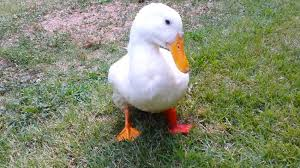
Early August brings the 2016 Summer Olympics in Rio. Hordes of talented athletes will embark on yet search for world fame. Many have spent decades preparing.
Years ago they first faced the reality of losing. Only then it may have been a family-friendly round of Monopoly with mom, dad, and some mean older brothers and sisters. Mom and dad may have already discussed their individual philosophies on the importance of winning and losing. Sometimes, conflicting parental opinions can make even a simple game complex. One may want to be supportive and flood their child with the positive result of victory. The other may believe the world is a tough place. Losing is vital to developing the flexibility and chutzpah necessary to succeed.
I recall years ago playing a board game with the bunny-fuzzy name “Mother’s Helper.” Both my daughter and niece loved playing this game on a sleep-over weekend evening. They were old enough to understand a competitive game. They knew the rules, could perceive the odds of win/lose, and figure out who was “playing fair.”
This game had absolutely no skill requirement. It was sheer luck that propelled a winner to the finish line. The problem was – I always won. The likely hood of my always winning was beyond coincidence. I, the Mother, simply always won. It seemed like the outcome was written in the stars. On my turns, each card I turned over propelled me to the finish line while my “opponents” pulled the stinker cards and lagged woefully behind. With each card I turned over, both kids would chant “L.D. L.D. L.D.” which was the abbreviated appellation for “Lucky Duck.”
the finish line. The problem was – I always won. The likely hood of my always winning was beyond coincidence. I, the Mother, simply always won. It seemed like the outcome was written in the stars. On my turns, each card I turned over propelled me to the finish line while my “opponents” pulled the stinker cards and lagged woefully behind. With each card I turned over, both kids would chant “L.D. L.D. L.D.” which was the abbreviated appellation for “Lucky Duck.”
I knew I had ample opportunity to throw the game, letting one of my junior competitors “win.” But they were at the savvy grade school age when they could see a phony parent a mile away. That implied I was I losing faith in their ability to compete and win. Good thing Mother’s Helper was not a game where my adult experience could aid me across the finish line first. When kids see a hopeless case ahead with their inevitable loss, why play at all?
Kids can learn some important life lessons from playing board games. But that doesn’t mean every session has to be a learning experience. Competition is fun for everybody at the table. Learning to lose makes the positive experience of winning all the more pleasing.
So when we are watching the Rio competitions, I hope my fellow citizen viewers recall some lessons learned long ago – that just showing up – just getting there in the first place – should win each the award for being among the best of the billions of lesser mortals that walk this planet.